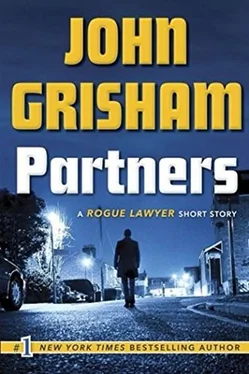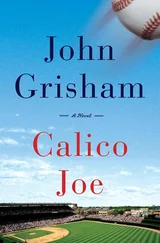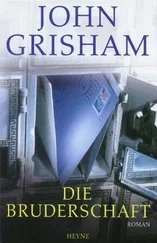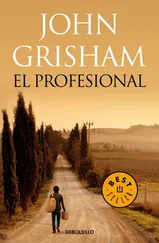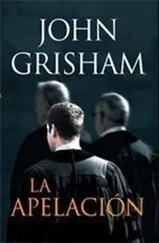Not Sebastian Rudd. He’d gotten his face in the newspaper a few times and he liked it. He’d won a couple of criminal cases no one else would take. His phone was ringing. His office was busy. He wasn’t getting rich, but he was paying his bills and driving a nice little BMW, pre-owned.
His latest secretary was named Rachel, a cute twenty-year-old who wanted to become a lawyer. She was single. Sebastian was divorced. She’d been there a month and the sexual tension was growing each day. Something was about to happen. She walked into his office on a Thursday morning and said, “You’ll never guess who just called.”
“I have to be in court in ten minutes,” Sebastian said, the same thing he said at least five times a week. “Who?”
“No name, but he asked if Mr. Rude, not Rudd, would be in a position to represent Thomas Ray Cardell.” She handed him a message slip and said, “Here’s his number.”
Sebastian’s jaw dropped. His heart froze. He fell back into his leather swivel and stared at Rachel. He finally managed to mumble, “You gotta be kidding.”
For three days, Mr. Thomas Ray Cardell had been front-page news in the Chronicle. Tee Ray, as he was known in Little Angola, was in jail, in protective custody actually, and charged with the capital murder of Officer Buck Lester. After three days of nonstop and one-sided coverage, it was well known that the drug dealer murdered the cop in a savage, execution-style killing. One report had Buck begging for his life.
“I’m not sure I want to get involved in this one,” Sebastian mumbled.
“He’s waiting for your call.”
“Did he say anything else?”
“No. A man of few words.” She turned around and headed for the door. Sebastian, as always, watched every step. Though he wasn’t sure, he believed the skirts had gotten tighter during her first month.
She closed the door. He took a deep breath, stared at the phone number, refocused, and told himself not to make the call. As a criminal defense lawyer, and one known as a brawler, he had crossed the line with the police, and there was no turning back. He had challenged their credibility in court. He’d caught them cheating. He’d called them liars when they were lying. He’d complained to their superiors. He fought for his clients, most of whom were guilty, and to the cops Rudd and his ilk were no better than the scum they represented. This, though, was different. The cold-blooded murder of a brave keeper of the peace, a decorated soldier, and a local boy at that was a crime so repulsive that no lawyer in his right mind would go near it. His reputation could be ruined. Threats and intimidation were practically guaranteed.
Thomas Ray Cardell was indeed entitled to a lawyer. That’s why the city funded the Office of the Public Defender. The PD had no choice.
Sebastian picked up the phone and dialed the number.
Two hours later, a short, thin black man of forty eased into Sebastian’s office and said hello. He said his name was Bradley, which didn’t fit at all. He wore a tailored black suit, starched white shirt, and a narrow red-and-yellow bow tie. With his horn-rimmed glasses and squeaky voice, he could easily have passed for a minister or an English teacher in a prep school. Anything but a drug dealer.
With prefect diction and an impressive vocabulary, Bradley described himself as an entrepreneur with fingers in lots of pies. At the top were apartment buildings and car washes. At the bottom was the real moneymaker-distribution. Tee Ray had been working for an organization that Bradley was “affiliated with.” This organization was well managed and highly disciplined. It had a policy of taking care of its own.
“It’s a crack operation, right?” Sebastian asked.
More or less. Tee Ray was a rookie, but then experience is hard to gain out there because of the risks. “How much will you charge to represent him?”
Sebastian whistled softly and found the question funny. Bradley never cracked a smile. “I think you should let the public defender handle it,” Sebastian said.
“We know the system, Mr. Rudd. Believe me, we know how things work.”
“Okay. To mount a proper defense of a man charged with the capital murder of a police officer will cost you a quarter of a million dollars.”
“That’s outrageous.”
“It is. No one can afford it. I’ve never heard of a lawyer getting a fee like that for such a case. Maybe a white-collar crook or someone like that, but not murder.”
“Why is it so expensive?”
“Because it will eat up my life until the trial is over. I’ll spend a fortune on investigators, jury consultants, expert witnesses. The State will throw everything it has at Mr. Cardell and spend whatever it takes. Trust me, Bradley, it’s a fat fee all right, but I won’t get rich off of it.”
Bradley swallowed hard and gently adjusted his glasses. He gave the impression of a man who could not be perturbed. Softly he said, “We’ll pay seventy-five thousand. That’s all. Cash. Think of the publicity you’ll get.”
Publicity was already on his mind. Sebastian nodded and smiled. He also admitted to himself it was unheard of for a criminal defense lawyer to collect a fee of $75,000 for a street crime. Cash. “I’ll think about it,” he said. “Give me twenty-four hours.”
“No problem. I assume you’ll need witnesses.” Bradley asked this as if he could snap his fingers and find all the testimony Tee Ray might need.
“Do you have witnesses?” Sebastian asked cautiously.
“Well, not yet, but I’m sure we can find some. Look, Mr. Rudd, we control the streets, not the police. This shooting happened on our turf. I’m sure there are eyewitnesses. We’ll help you find them.”
“Okay. While you’re looking, keep in mind that I prefer witnesses who are credible and have not spent time in jail.”
“That could pose a problem in our neck of the woods, but I’ll see what I can do.”
On a beautiful Saturday afternoon, six days after he died, Buck Lester was given a lavish farewell, complete with a full funeral Mass at a downtown cathedral, a somber procession along streets lined with hundreds of uniformed brethren, and a full military interment with flags and guns. It was televised from beginning to end and lasted two hours.
Sebastian figured it was a good time to slip across the street and meet his new client. He visited clients in jail every week and always in one of the many attorney conference rooms on the second floor. There, they talked in private through a screen. Tee Ray, though, was the man of the moment, the hottest defendant in town, so for him there were different procedures. Sebastian was taken to a windowless room on the fourth floor, a room he had never seen before. He bitched at the guard about the extra security. The guard ignored him; the lawyers were always bitching about something.
The partition was not a wire screen but rather a thick sheet of some type of unbreakable glass with a three-inch hole in the middle of it. Sebastian stared at the hole, glanced at his watch, and waited. It was not unusual for the guards to make the lawyers wait, and wait. Bitching usually led to more waiting, but the trade-off was worth it. It was important to bitch to show the guards that they, the lawyers, were not intimidated. As a general rule, the guards despised the lawyers. The lawyers neither liked nor disliked the guards. They barely existed. They were either minimum-wage flunkies or part-time hobby cops lacking enough brains to get a real badge.
Sebastian pondered these things as he waited. The $75,000 in cash was locked in a safe-deposit box in a downtown bank. He was still debating how much to put on the books.
Читать дальше
